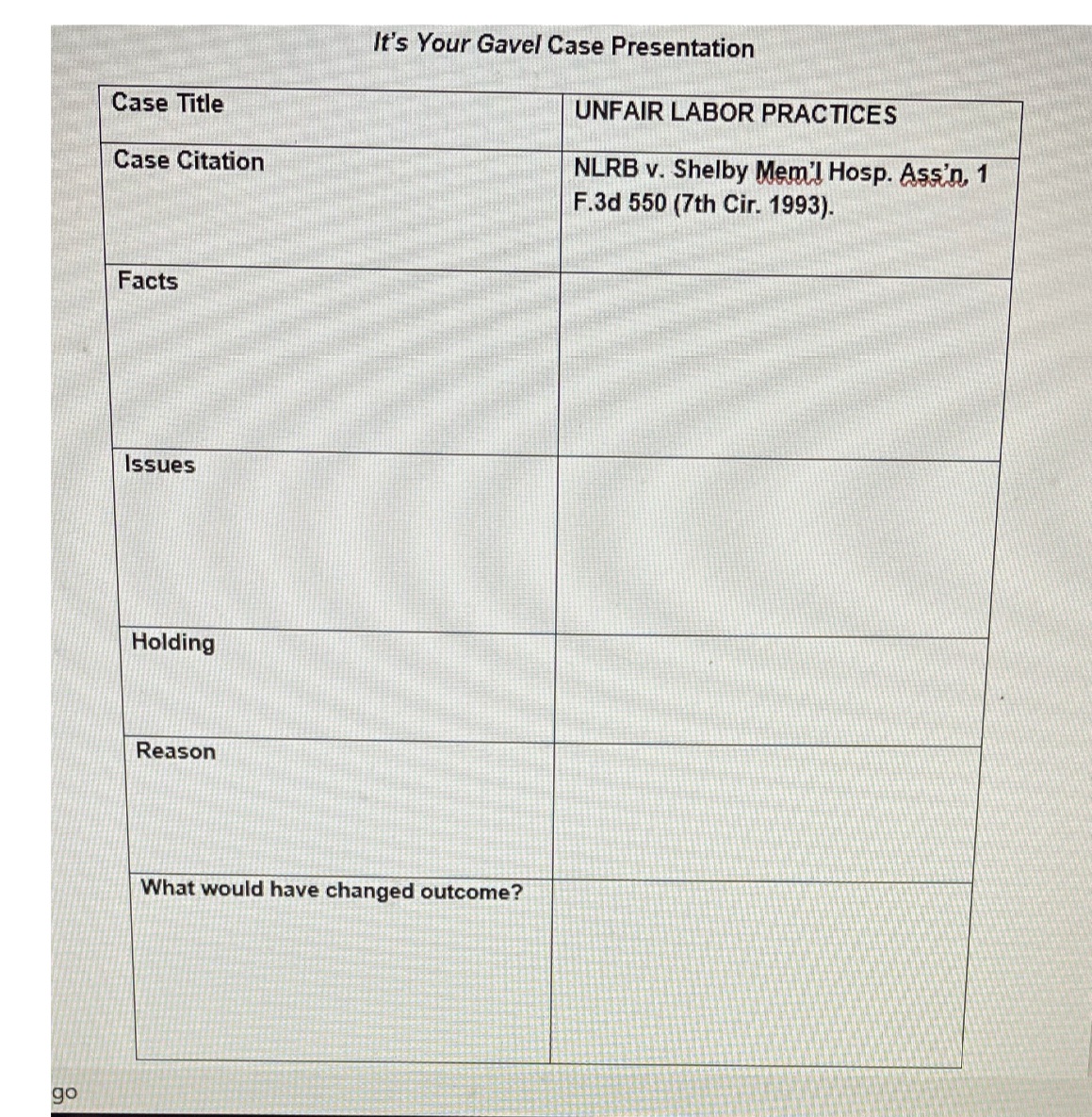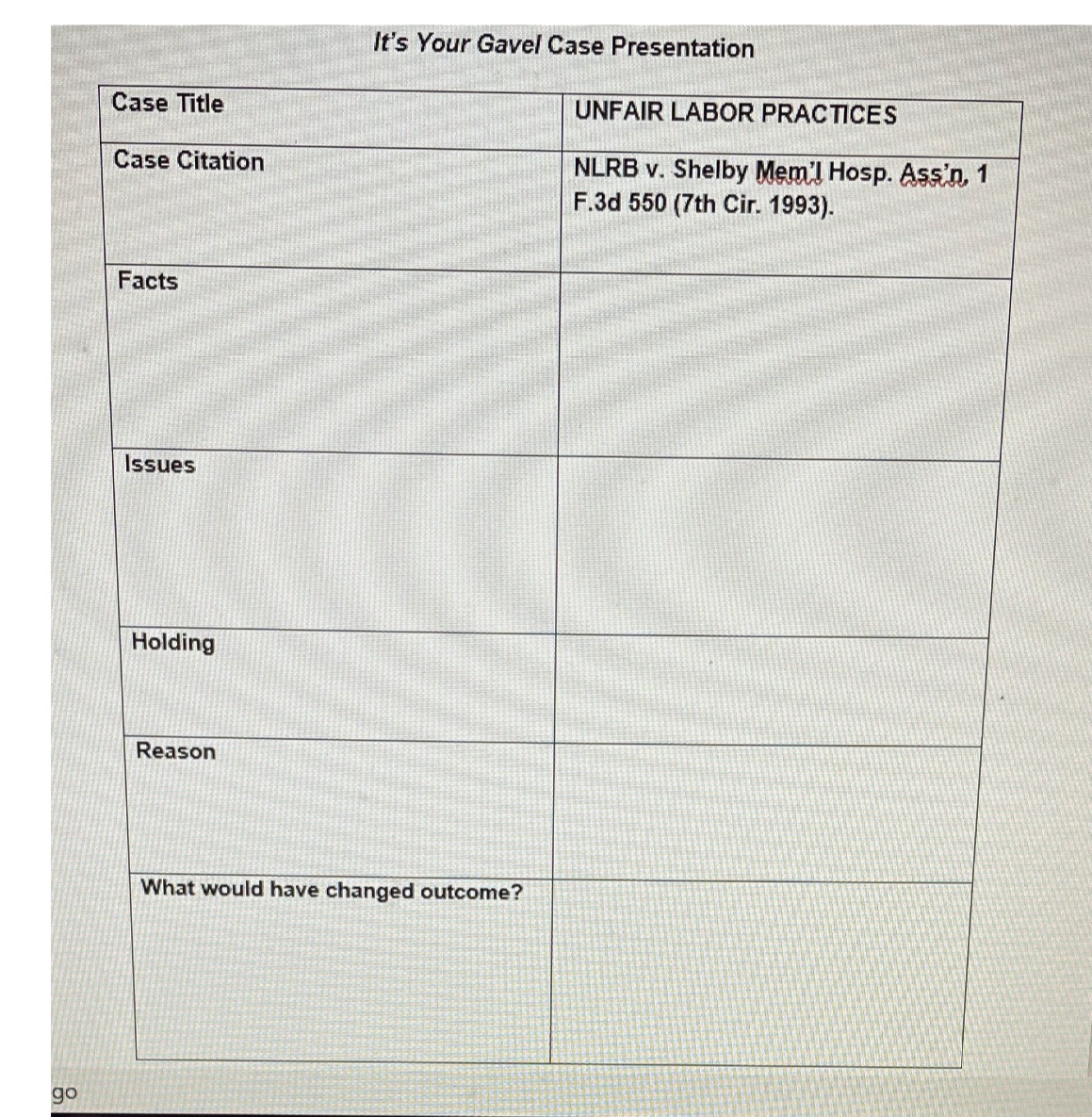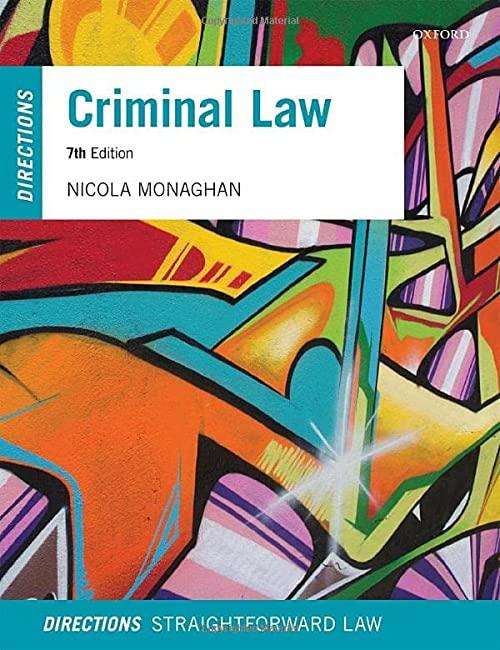Question
Ms. Welton attended a union organization meeting on July 5. At a hearing before an administrative law judge, she testified that the day after the

Ms. Welton attended a union organization meeting on July 5. At a hearing before an administrative law judge, she testified that the day after the meeting, her supervisor asked whether she or anyone from the dietary department attended the meeting. Welton's supervisor denied having any conversation with Welton about the union meeting. The National Labor Relations Board (NLRB) found that the questioning of Welton constituted unlawful interrogation.Mr. Hopkins worked as a janitor for the nursing facility. He also attended the meeting on July 5. He testified that his supervisor approached him at work and questioned him as to whether any of the nurses or aides harassed him about the union. The board credited Hopkins's and Welton's version of the events, noting that they had nothing to gain by fabricating their testimony.On July 18, the facility circulated a memorandum to all employees that stated: 'This is to advise that the NLRB has tentatively set a hearing on Wednesday, July 25th, to decide who can vote in a union election. Our position is that supervisors, RNs, and LPs cannot vote. We will keep you advised."On July 19, the facility held a mandatory meeting for all nurses and supervisors. The facility's administrator, Mr. Wimer; the facility's attorney, Mr. Yocum; and the chief executive officer, Mr. Colby, told the nurses that, in the facility's opinion, nurses could not vote in the upcoming election but must remain loyal to the facility. When asked by Sands, a union supporter, what he meant by loyalty, Yocum replied that all nurses were prohibited from engaging in union activities. When asked by Sands why the facility opposed the union, You responded, "Well, for one thing, they cost too much money....Do you think those dues come out of thin air?"The board concluded that the facility, through You, violated the National Labor Relations Act by telling nurses present at the meeting that they could not vote in the upcoming union election or participate in union activities and that such activities could subject them to dismissal.

Step by Step Solution
There are 3 Steps involved in it
Step: 1

Get Instant Access to Expert-Tailored Solutions
See step-by-step solutions with expert insights and AI powered tools for academic success
Step: 2

Step: 3

Ace Your Homework with AI
Get the answers you need in no time with our AI-driven, step-by-step assistance
Get Started


